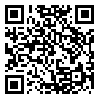

Volume 28, Issue 2 (Spring 2022)
Intern Med Today 2022, 28(2): 202-219 |
Back to browse issues page
Download citation:
BibTeX | RIS | EndNote | Medlars | ProCite | Reference Manager | RefWorks
Send citation to:



BibTeX | RIS | EndNote | Medlars | ProCite | Reference Manager | RefWorks
Send citation to:
Pourshahri E, Khajavian N, Bazeli J, Sadeghmoghadam L. Factors Related to the Acceptance and Rejection of COVID-19 Vaccination. Intern Med Today 2022; 28 (2) :202-219
URL: http://imtj.gmu.ac.ir/article-1-3804-en.html
URL: http://imtj.gmu.ac.ir/article-1-3804-en.html
1- Student Research Committee, Gonabad University of Medical Sciences, Gonabad, Iran.
2- Social Determinate of Health Center, Gonabad University of Medical Sciences, Gonabad, Iran.
3- Department of Emergency Medicine, School of Nursing and Midwifery, Gonabad University of Medical Sciences, Gonabad, Iran.
4- Department of Nursing, Social Development and Health Promotion Research Center, School of Nursing, Gonabad University of Medical Sciences, Gonabad, Iran. ,lsmoghadam81@gmail.com
2- Social Determinate of Health Center, Gonabad University of Medical Sciences, Gonabad, Iran.
3- Department of Emergency Medicine, School of Nursing and Midwifery, Gonabad University of Medical Sciences, Gonabad, Iran.
4- Department of Nursing, Social Development and Health Promotion Research Center, School of Nursing, Gonabad University of Medical Sciences, Gonabad, Iran. ,
Abstract: (3378 Views)
Aims Despite various government measures, control of COVID-19 requires immediate action, including vaccine production. Given the role of vaccine acceptance factors in future planning, this study aimed to unfold the determinants of COVID-19 vaccine acceptance in Gonabad.
Methods & Materials This descriptive-analytical study was performed on 292 people in Gonabad city, Iran, in 2021. The random multi-stage sampling method was used to select two groups of samples: Vaccinated and unvaccinated. The data collection tool consisted of a demographic checklist and a researcher-made questionnaire on the reasons for accepting or rejecting the COVID-19 vaccination. Data were collected by telephone and analyzed by SPSS software, version 23 using mean, standard deviation, and the Chi-square test at a significance level of less than 0.05.
Findings Most of the research participants were women (51%). The Mean±SD age of the vaccinated and non-vaccinated groups was 57.55±12.24 and 55.38±41.1 years, respectively. Two factors of living with people at risk (88.5%) and respect for the rights of others (80.9%) were the most important reasons for accepting and worrying about the side effects of the vaccine (63%). Worrying about the content and lack of knowledge about the effectiveness of the vaccine (45.3%) were mentioned as the most important reasons for not accepting the COVID-19 vaccination.
Conclusion Considering the importance of two factors, including the concern about the side effects of the COVID-19 vaccine and concern about the content and ineffectiveness of COVID-19 vaccine in rejecting COVID-19 vaccine, increasing public awareness and knowledge about the effectiveness of vaccines in the country seems necessary to plan and invest on a large scale in the country through reliable sources as well as efforts to reduce the fear of the consequences of vaccination.
Methods & Materials This descriptive-analytical study was performed on 292 people in Gonabad city, Iran, in 2021. The random multi-stage sampling method was used to select two groups of samples: Vaccinated and unvaccinated. The data collection tool consisted of a demographic checklist and a researcher-made questionnaire on the reasons for accepting or rejecting the COVID-19 vaccination. Data were collected by telephone and analyzed by SPSS software, version 23 using mean, standard deviation, and the Chi-square test at a significance level of less than 0.05.
Findings Most of the research participants were women (51%). The Mean±SD age of the vaccinated and non-vaccinated groups was 57.55±12.24 and 55.38±41.1 years, respectively. Two factors of living with people at risk (88.5%) and respect for the rights of others (80.9%) were the most important reasons for accepting and worrying about the side effects of the vaccine (63%). Worrying about the content and lack of knowledge about the effectiveness of the vaccine (45.3%) were mentioned as the most important reasons for not accepting the COVID-19 vaccination.
Conclusion Considering the importance of two factors, including the concern about the side effects of the COVID-19 vaccine and concern about the content and ineffectiveness of COVID-19 vaccine in rejecting COVID-19 vaccine, increasing public awareness and knowledge about the effectiveness of vaccines in the country seems necessary to plan and invest on a large scale in the country through reliable sources as well as efforts to reduce the fear of the consequences of vaccination.
Type of Study: Original |
Subject:
Diseases
Received: 2021/06/22 | Accepted: 2022/05/14 | Published: 2022/04/1
Received: 2021/06/22 | Accepted: 2022/05/14 | Published: 2022/04/1
| Rights and permissions | |
 |
This work is licensed under a Creative Commons Attribution-NonCommercial 4.0 International License. |





